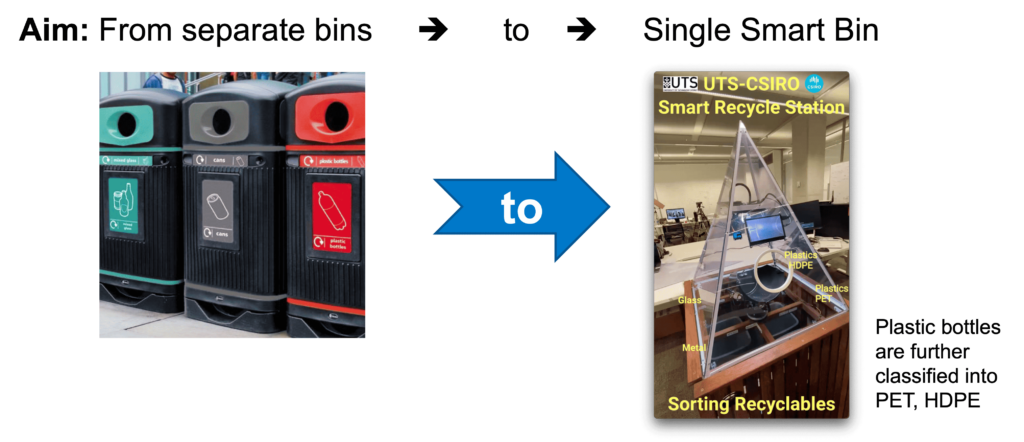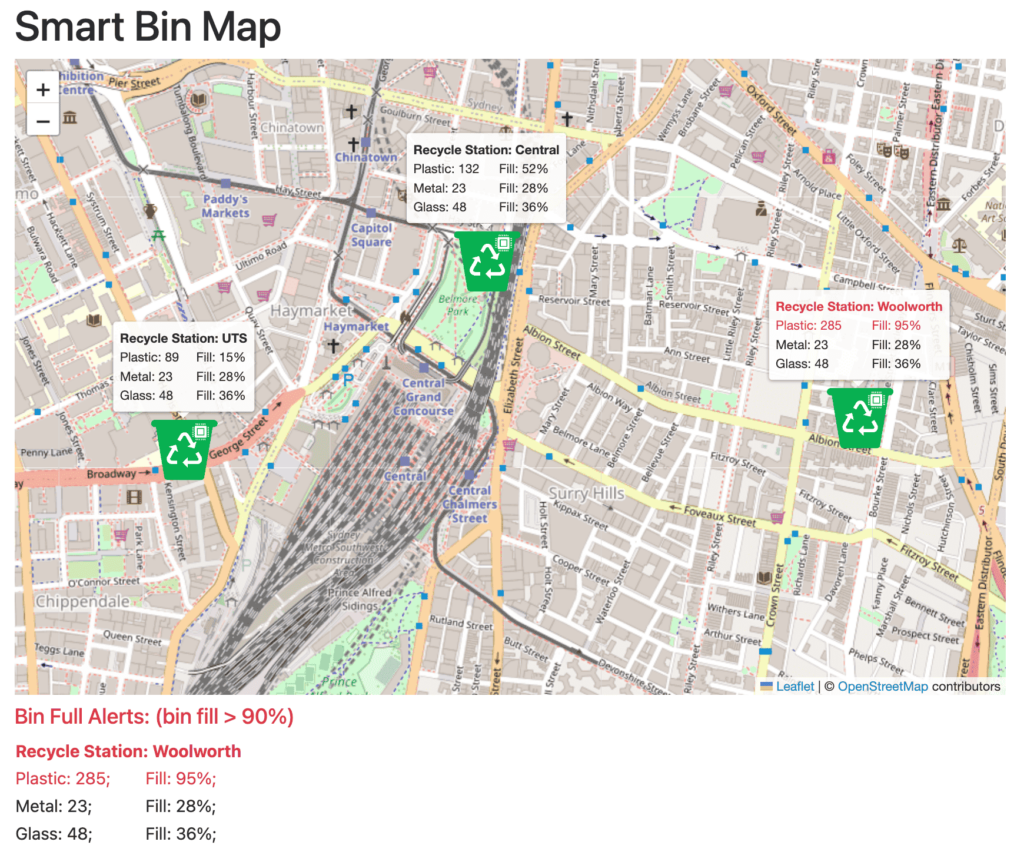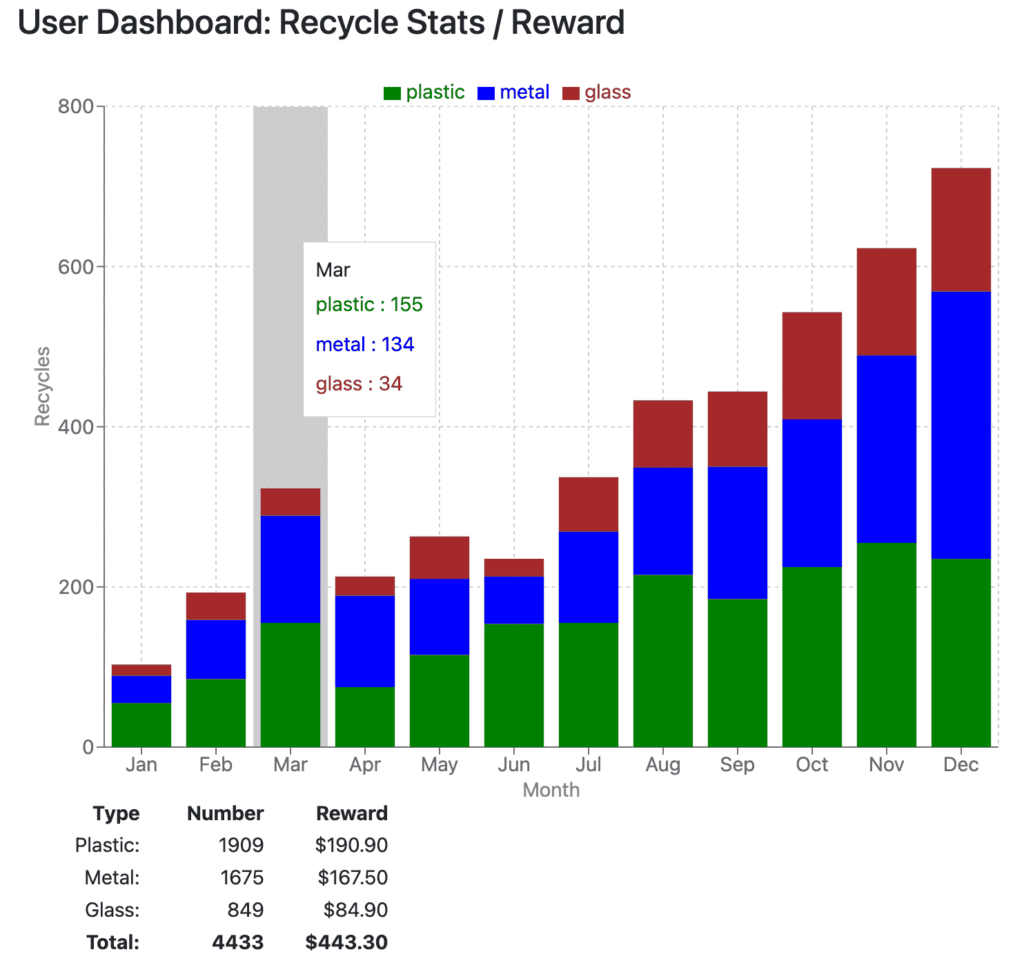Demonstration: Waste recognition and sorting
UTS Global Big Data Technologies Centre, in partnership with CSIRO, Australia’s national science agency, is developing AI powered Smart Bin Technologies to automatically classify and sort recycled bottles. This will help to produce high-quality recycled material and build Australia’s circular economy.
NSW generates 800,000 tonnes of plastics every year, with only 10% recycled due to poorly sorted and difficult materials. The wide range of plastic waste materials, such as polymers, pose unique challenges for the recycling process. The contamination of one type of plastic by another can also cause serious processing problems.
Smart Bin Tech has developed innovative technologies, including IoT, sensing and robotics, to detect, classify, and sort recyclables into plastic, metal, and glass recycle bins. Moreover, plastic bottles are classified using AI and Infrared spectroscopy technologies, and sorted into various types of plastics. A data system will enable users to record and visualise their recycling activities, and manage the smart bins in real time.
The separation and sorting of plastic waste serve as major steps in plastic recycling. Smart Bin Tech aims to change the ways that recycled materials are collected and processed to improve recycling rates and to reduce landfill. This research is part of CSIRO’s Ending Plastic Waste Mission, which has a goal of an 80 per cent reduction of plastic waste entering the Australian environment by 2030.
Technologies
UTS Global Big Data Technologies Centre, in partnership with CSIRO, Australia’s national science agency, is developing Smart Bin Technologies to automatically classify and sort recycled bottles. Innovative technologies, including IoT, sensing, robotics, are developed to detect, classify, and sort recyclables into plastic, metal, and glass recycle bins. Moreover, plastic bottles are further classified using AI and Infrared spectroscopy technologies, and sorted into various types of plastics, PET, HDPE, etc.
We are also developing a data system for users to record and visualise their recycle activities, and for administrators to manage the smart bins. Users can then visualise and share their recycle statistics through User Dashboard. Administrators can monitor bin status, including item counts and fill levels, in Bin Map, and receive bin full alerts via SMS or email in real time.
Innovative technologies have been developed, including
- Sensing: to detect recycled object types, metal, glass, or plastics.
- AI image processing: further classify plastics into PET and HDPE (common plastic bottles).
- Infrared spectroscopy: provide accurate plastic classification. detect more plastic types, PET, HDPE, PP, and PS.
- Robotics: automatically sort recycled bottles into designated bins.
- IoT: communicate recycle statistics and bin status to SmartBin.Tech data system

Smart Bin Data System
We are also building a Smart Bin Data System for users to record and visualise their recycle activities, and for administrators to manage the smart bins. The data system includes:
User Dashboard:
- User reward status
- User recycle statistics chart
Smart Bin Map
- Bin status: item counts and bin fill levels
- send bin full alerts via email or SMS


